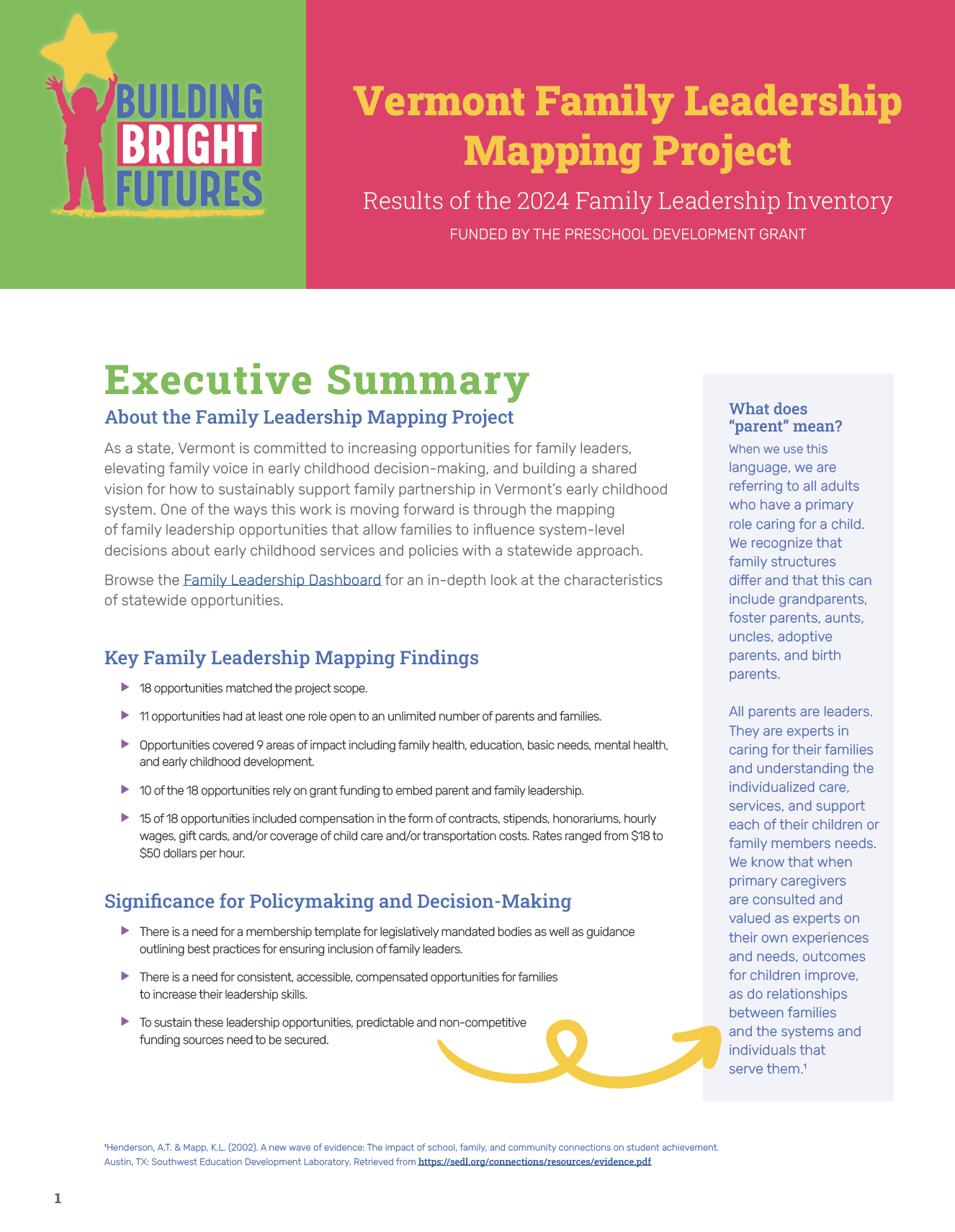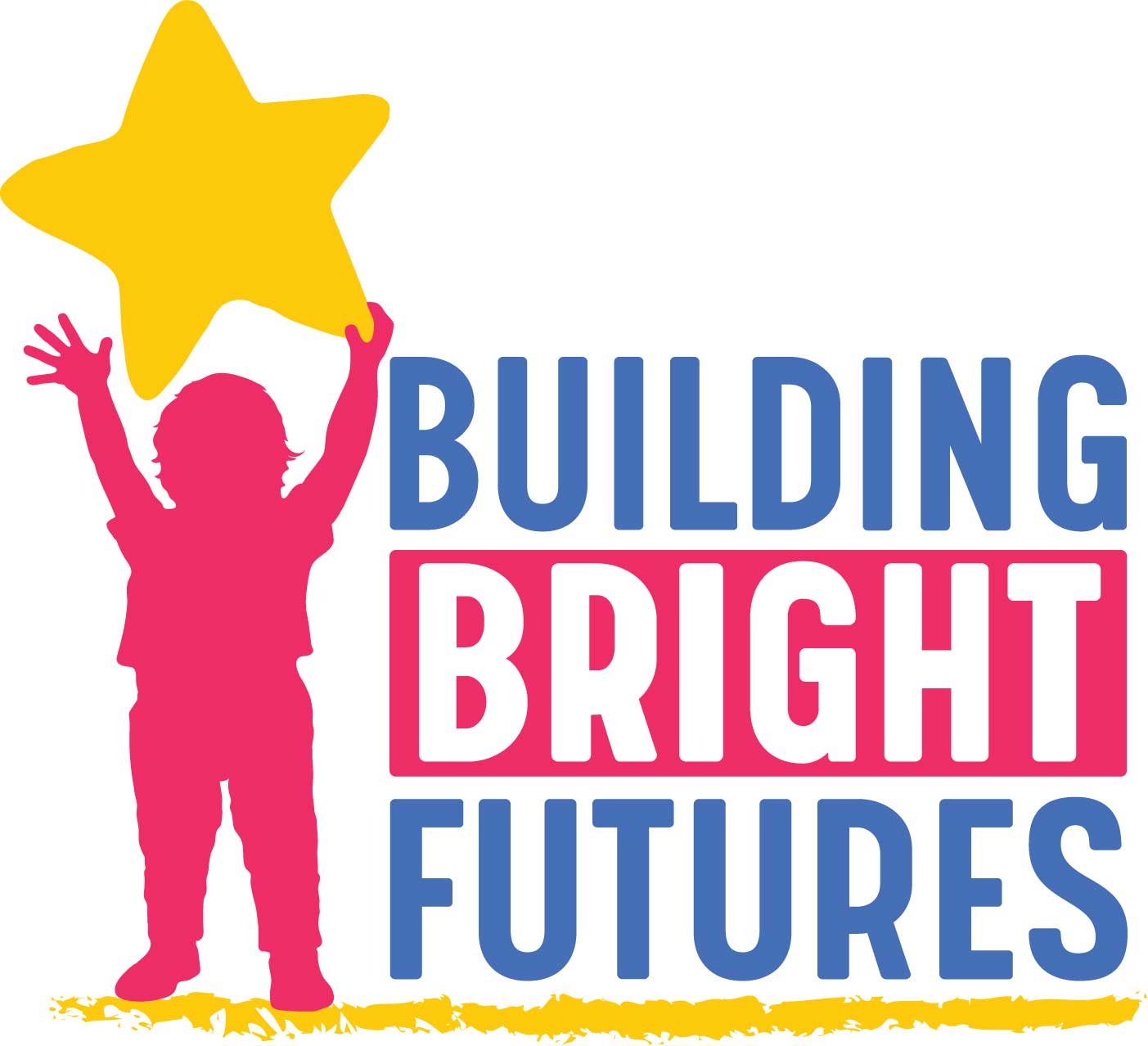About the Family Leadership Mapping Project
As a state, Vermont is committed to increasing opportunities for family leaders, elevating family voice in early childhood decision-making, and building a shared vision for how to sustainably support family partnership in Vermont’s early childhood system. One of the ways this work is moving forward is through the mapping of family leadership opportunities that allow families to influence system-level decisions about early childhood services and policies with a statewide approach.
Browse the Family Leadership Dashboard for an in-depth look at the characteristics of statewide opportunities.



